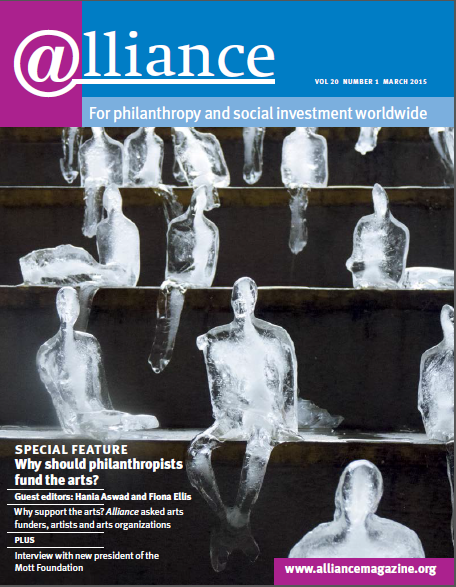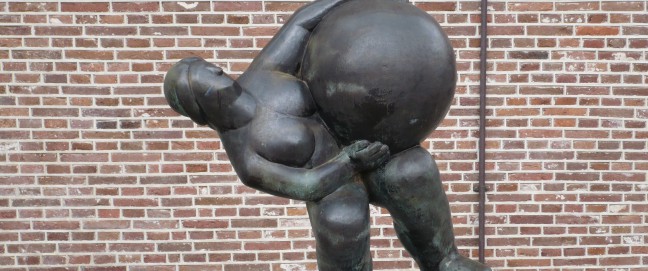Foundations can offer much more than money. They can also mobilize expertise, experience, resources and convening power in the service of their mission. However, despite the increasing awareness of ‘funder plus’, perhaps there is another asset that we don’t think about as often as we should: time.
On the occasion of the Association of Charitable Foundations’ (ACF) 25th anniversary, we are arguing that, in a positive way, foundations experience time quite distinctively from other players in society. Furthermore, by becoming more conscious of this difference, foundations can leverage an additional advantage in achieving their charitable aims. Perhaps time is best understood, then, as a tangible asset, one that could, and perhaps should, be deployed with intention.
In a few months we have a general election in the UK. Anyone who has worked in or alongside government knows how closely activity can be driven by the election cycle – and we will no doubt see that relationship further intensify as polling day approaches. Even outside election time, policies are introduced overnight, other programmes disappear, and money gets spent within time-scales that suit treasury accounting rules and not the needs of social change.
The business world tends to be driven by the economic cycle – although foundations and government are by no means immune from its shocks. So, for example, in the last year we have seen the sad announcement of the end of the Northern Rock Foundation, after attempts to reach a solution with Virgin Money, which acquired Northern Rock bank in 2012, unfortunately broke down – a major blow to funding in the north-east of England. However, that exception proves a general rule: charitable foundations are not, by and large, subject to the same pressures as commercial enterprises, which must seek a profit or die, and for whom market valuation provides the principal measure of success.
By contrast, for those with endowments, there is a growing awareness that – over the long term – investments provide a secure source of income which few others have. Our own research last year demonstrated that charity investors with the greatest sense of the long term generally felt able to spend at higher rates than those that thought in shorter time periods. They can do that because taking a long-term approach to the stewardship of their endowments gives them the confidence to ride out volatile short-term market fluctuations, allowing them to direct all their attention and activity to the mission – no matter how long it takes to see it through or who else comes or goes.
Foundations can operate in the territory of ‘don’t know’ for longer than others; they can build evidence bases over years and fund longitudinal studies that take generations to yield results. Because they have a more secure future, foundations have the freedom to redefine what success is, using their experience to deduce when new solutions are needed, and waiting patiently for the opportune time to act.
ACF research shows that as the recession bit, 80 per cent of foundations maintained their spending rates and 5 per cent actually increased them. Further research has also shown that, despite a fall in income of around 10 per cent over the past two years, foundation giving to charitable causes grew by £271 million, highlighting the adaptability and resilience afforded to foundations by their asset base.
The implications of this can affect beneficiaries too. It is not uncommon to hear fundraisers talk of the ‘mismatch’ between the strategic, long-term needs of an organization and the immediacy of tone and urgency of message that is often required to attract public giving. If an organization needs time to explore a complex or unpopular issue, or a funding model that allows them to work to their strengths over a sustained period, then it is arguable that foundations are increasingly one of the few genuine sources of this kind of currency.
It is a ‘currency’ that takes many forms: foundations, with their overriding emphasis on mission, add far more than just financial value. Whether by creatively using their expertise, reputation, convening power or intellectual resources, they can work independently and counter to received wisdoms. This allows them to weather storms and play a distinctive role in conserving social good that is under threat and catalysing it where it is absent.
A conscious awareness of time as an asset, as something to be intentionally deployed in the service of charitable mission, is key in adequately assessing foundations’ role in civil society, whether in responding creatively to immediate need or taking a longer-term view.
David Emerson CBE is chief executive of the UK’s Association of Charitable Foundations (ACF). Email David@acf.org.uk
Thanks go to Richard Jenkins and Keiran Goddard for their input into this article.
Lead image credit: Photo by Feggy Art







Comments (0)